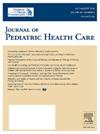障碍和促进因素影响父母愿意遵循医疗保健提供者指导,以解决与儿童早期肥胖风险相关的行为:一项定性描述性研究。
IF 1.8
4区 医学
Q2 HEALTH POLICY & SERVICES
引用次数: 0
摘要
导言:本研究旨在评估在非西班牙裔黑人和西班牙裔家庭中,父母是否愿意在婴儿出生后的头六个月根据医疗服务提供者的建议改变与肥胖风险相关的行为:方法:20 位家长完成了一份有关其当前婴儿喂养、睡眠和营养行为的调查,该调查为定制的半结构式访谈提供了指导:结果:阻碍父母改变与婴儿期肥胖风险相关的行为的因素包括优先考虑婴儿饥饿感和依赖父母的直觉。促进因素包括理解医疗服务提供者的理由和相信医疗服务提供者的动机:讨论:大多数家长都认为医疗服务提供者是值得信赖的来源,如果医疗服务提供者详细解释了行为改变建议的理由,家长就会愿意听从专业建议。未来,由可信来源(如儿科初级保健提供者)制定的干预措施将为提供针对个人家庭需求的早期肥胖预防教育提供一个很有前景的机制。本文章由计算机程序翻译,如有差异,请以英文原文为准。
Barriers and Facilitators Influencing Parents’ Willingness to Follow Healthcare Provider Guidance for Addressing Behaviors Linked to Early Childhood Obesity Risk: A Qualitative Descriptive Study
Introduction
This study aims to assess parents’ willingness to modify behaviors associated with obesity risk upon a provider's recommendation in the first six months of life among non-Hispanic Black and Hispanic families.
Method
Twenty parents completed a survey about their current infant feeding, sleep, and nutritional behaviors that guided a tailored semistructured interview.
Results
Barriers to parents’ willingness to modify behaviors associated with obesity risk in infancy included prioritizing perception of infant hunger and relying on parental intuition. Facilitators included understanding the provider's reasoning and trusting the provider's motivations.
Discussion
Health care providers are considered trusted sources by most parents and parents are willing to follow professional advice if providers share detailed explanations on the reasoning for behavior change recommendations. Future interventions created by trusted sources, like pediatric primary care providers, offer a promising mechanism for providing education on early life obesity prevention that is tailored to individual family needs.
求助全文
通过发布文献求助,成功后即可免费获取论文全文。
去求助
来源期刊

Journal of Pediatric Health Care
NURSING-PEDIATRICS
CiteScore
3.40
自引率
10.70%
发文量
140
审稿时长
24 days
期刊介绍:
The Journal of Pediatric Health Care, the official journal of the National Association of Pediatric Nurse Practitioners, provides scholarly clinical information and research regarding primary, acute and specialty health care for children of newborn age through young adulthood within a family-centered context. The Journal disseminates multidisciplinary perspectives on evidence-based practice and emerging policy, advocacy and educational issues that are of importance to all healthcare professionals caring for children and their families.
 求助内容:
求助内容: 应助结果提醒方式:
应助结果提醒方式:


